History
History was one of my least favorite subjects in school, the concept of memorizing boring facts about boring white people seemed unappealing. Turns out theres more to history than that! Most of my reading has been focused on American history but I'm working on branching out into international history - recommendations are appreciated as always!
American Imperialism

How to Hide an Empire, by Daniel Immerwahr
This is one of the best history books I've ever read, and opened my eyes to see how complicated and interesting history can be. The author emphasizes how the "greater" United States is often forgotten and overlooked, both now and throughout history. Often the reason for this was due to who lives there (ie white or not), and how this affected the fates of these places (ie Hawaii vs the Philippines). The book also points out how WWII was a turning point for imperialistic empires, and the US became an empire in its own right but not in the same way that prior countries had done it. For example, you'll learn more about standardization of screw threads (and have a great time learning about it). I don't want to spoil the book too much (it's impossible to encapsulate in a review), you'll have to read it yourself!
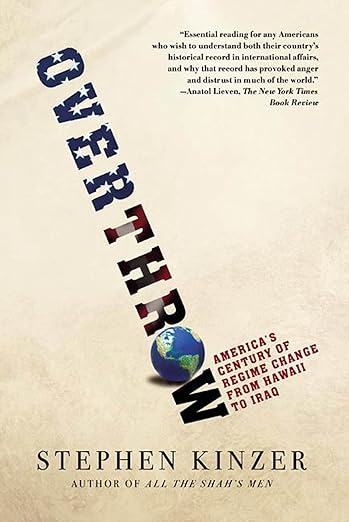
Overthrow, by Stephen Kinzer
Writing this in the month that the United States has extradited the Venezuelan president, many people are talking about how unprecendented this is - the US doesn't stick it's hands in other countries politics. Kinzer's book details how untrue this is, and in fact America has over a century of sticking its nose in international affairs to an extreme degree. Although some readers may be familiar with the story of Hawaii or Afghanistan, he delves in with a greater detail that made me really comprehend the depths America has gone to (that we know of...). Reading this book made me not-so-proud to be an American, but that's a good step to change.
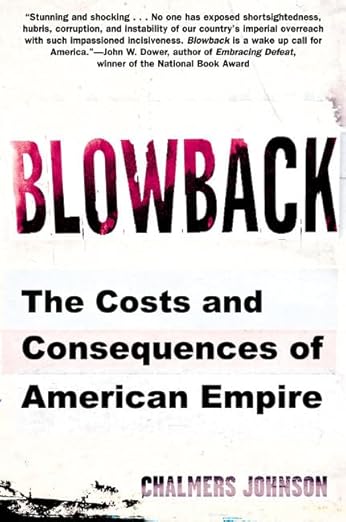
Blowback, by Chalmers Johnson
When people talk of American imperialism in Asia, the focus is often surrounding the Vietnam War. Johnson's book looks into the effect America has had on many of the other countries in the area, a topic that is often overlooked. He discusses the longterm damage of the Okinawa naval base, the US's hand in the South Korean political upheavals, and more. Makes you want to learn more about the history of the region!
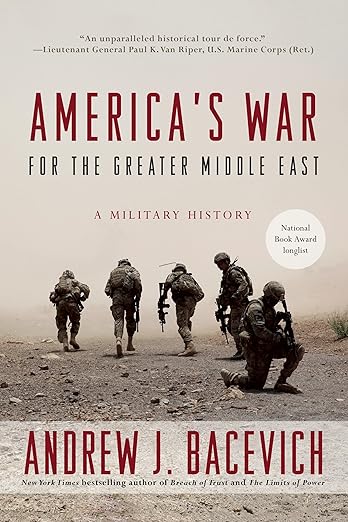
America's War for the Greater Middle East, Andrew Bacevich
Growing up during the Afghanistan and Iraq wars, it can sometimes be difficult to see the bigger picture. Bacevich is extremely knowledgeable and well-written on Middle East military topics and this book functions as a nice overview of not just the Middle East, but understanding the US role in the Balkans and North Africa. Understanding how we as a country ended up in these situations and the struggles of getting out of them is complex but well-detailed. An exasperating but excellent read.
American History
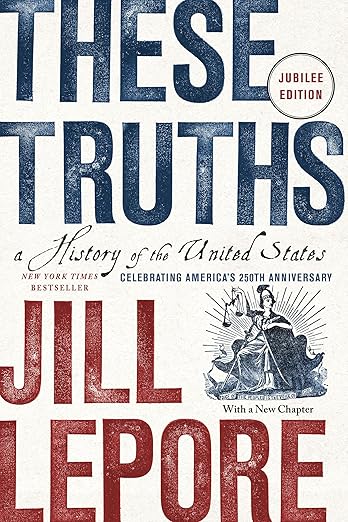
These Truths, Jill Lepore
An expansive look at American History, I genuinely found this book to be a page turner. Lepore is not overly heavy-handed, implying throughout the book that the idea of "these truths" are flexible and changeable, especially depending on who they apply to throughout American history. Despite the task of covering all of US history in a single book, she discusses everyone from presidents down to the Americans who played small (but important) roles in the evolution of the country. She also demonstrates the importance of how the truth has been bent and interpreted by pollsters, PR firms, and many other groups with their own specific motivations. A less radical take than Zinn, a great read and a great place to start your journey into American history.

The People's History of The United States, Howard Zinn
Whether you feel Zinn is overboard or doesn't push hard enough (or his views are just right), you should give this a read at least once. This book is the replacement to every high school textbook, taking a hard look at the truth of American history, as a place of racism, misogyny, and class warfare. Although this was not the first book I've read about the history of racism and persecution in America, I was most impressed by the role of class that gets glossed over during many history lessons. It's unfortunate to realize that the same struggles occurring today between most citizens and the elites have been going on before America's founding. One of the other highlights of the book is the emphasis on personal accounts and primary sources, which is where it receives the title of "People's History." It's a long read but well worth it.
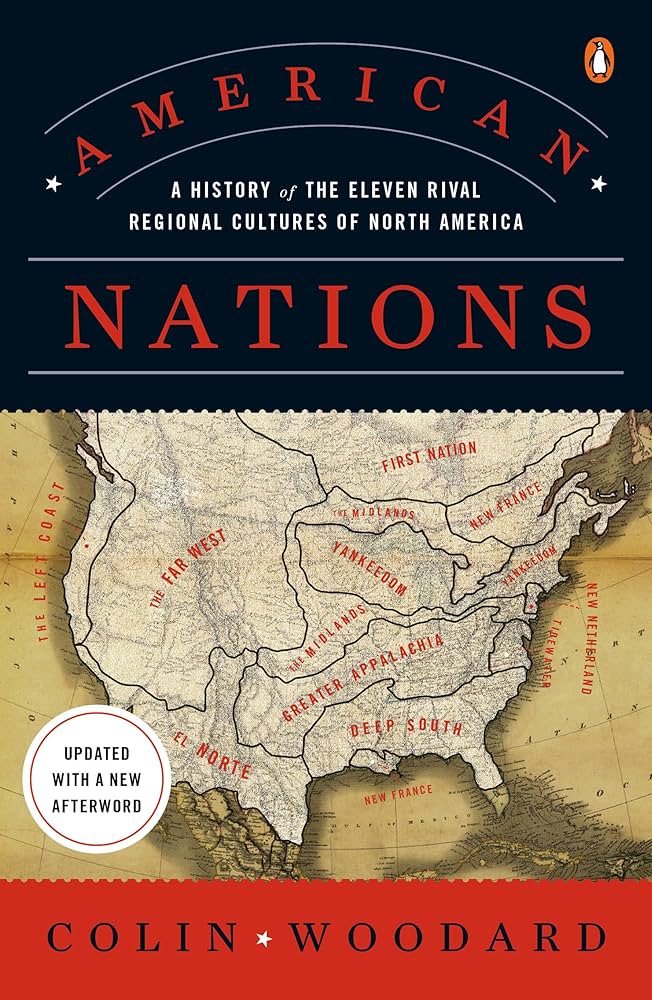
American Nations, Colin Woodard
Whatever you ultimately think of his theses, this book is an important read. Woodard describes the United States as separate nations founded with separate beliefs and cultures, forced together against Britain, and in conflict ever since. I don't disagree with a lot of the ideas in the book, and although it doesn't explain everything in American politics I think it helps me understand regional differences in politics and culture. I enjoyed the inclusion of Canada and Mexico, as excluding them makes understanding regional differences more difficult. Definitely give it a read!
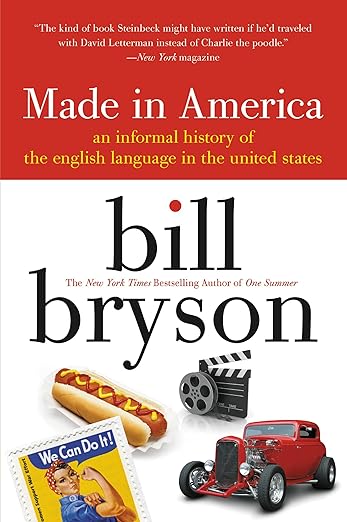
Made in America, by Bill Bryson
A book about American English, but far more than just linguistics, also incorporating plenty of history and the typical Bryson humor. Learn about how Ben Franklin was a huge fan of fart jokes (then again, who isn't?), along with the Native American origin of more words than you thought possible and may other interesting linguistic nuggets.
American History and Race
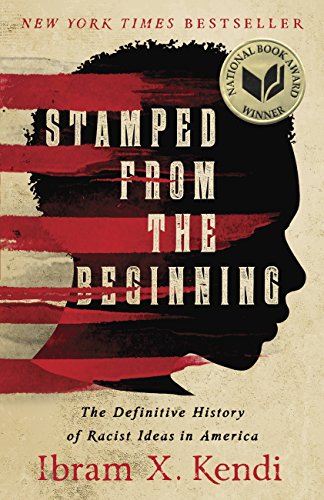
Stamped from the Beginning, by Ibram X. Kendi
I expected this book to be a history of racism in America, but was pleasantly surprised that it was not. Instead, as the cover points out, this is a history of "racist ideas" in America. The central theme of the book is that racism vs antiracism is not as simplistic as it seems. One of the main points is how segregationists and assimilationists are often at odds, but the idea of assimilating with the "mainstream" and losing a group's identity is just as inherently racist as remaining separate and unequal. Attempts to move past racism are constantly met with challenges but in different and constantly evolving ways. For those who like biographies, the book is told with a focus on five different historical figures at different timepoints in history.
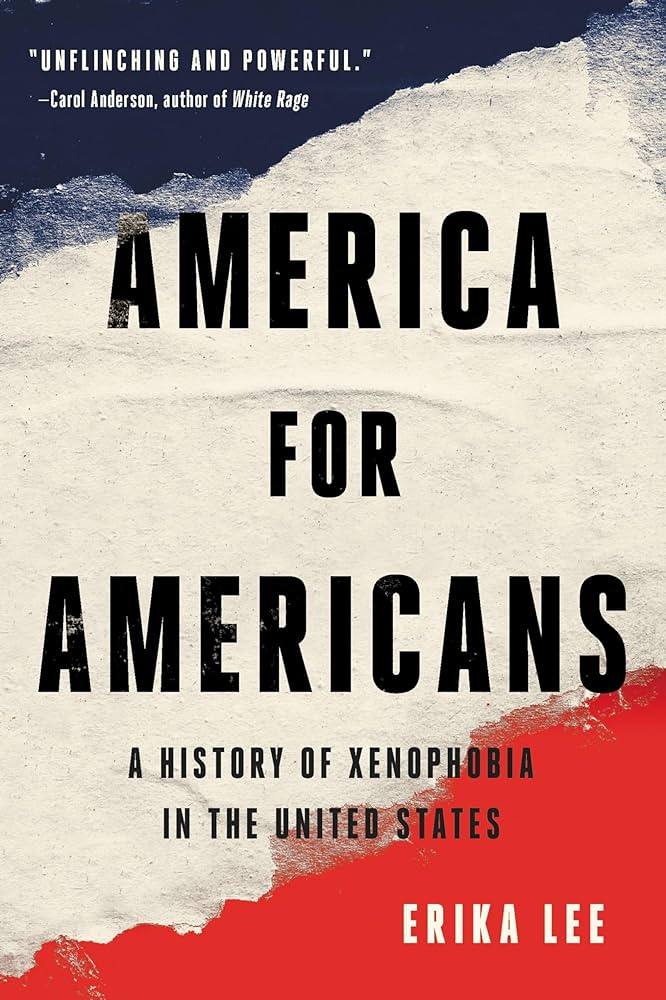
America for Americans, by Erika Lee
An extremely well-written book about the history of xenophobia throughout America's history. The book explains how some groups have been begrudgingly incorporated into America (aka white America), partially to maintain exclusion of other groups (aka non-white America). Some of the ways this country has treated foreigners is truly sickening and needs to be acknowledged. Learn about how the US sent Mexican Americans back across the border during the Great Depression, or how South American countries shipped their Japanese citizens to the US for internment during WWII and wouldn't take them back after the war. The book also points out how our current understanding of (illegal) immigration is not as immutable as we might think, and the repercussions of many historical and political decisions and the effects on the country today. The book was written right before COVID, but the paperback copy has an extra chapter looking at the anti-Asian experience since the pandemic started.
American History and the Environment
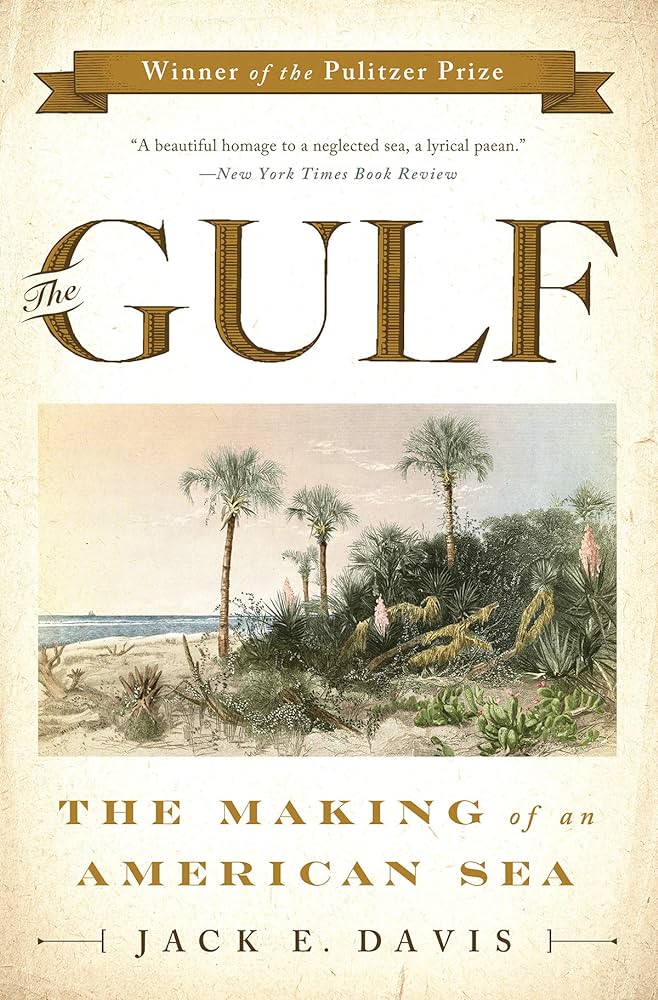
The Gulf, by Jack Davis
Similar to Immerwahr's book (see above), this is one of those books that seems mildly interesting on the bookshelf, so you buy it not realizing what an unbelievably good read you're in for. Davis sets the stage, pointing out how important the Gulf of Mexico is to American history and gets so little coverage compared to the Atlantic or Pacific oceans. The book covers so many topics, noting the links between human development/exploitation and loss of environmental resources. He discusses hurricanes, oil drilling, sportfishing, the plumage industry, and housing developments. One of the best parts is learning about the people who worked in the public eye and behind the scenes to defend the Gulf's nature for future generations to enjoy.
World History

Sapiens, Yuval Noah Harari
Everyone has seen this book on sale at the bookstore, and I'll admit I'm always hesitant to see if it lives up to expectations. I thoroughly loved it, and not in the way I expected. I thought this was going to be a straightforward history book, but instead it took a very broad look at what has defined history: agriculture, religion, nations, currency, amongst other topics. A book that was hard to put down, but also forced me to pause and question some of the assumptions I make about everyday life. Yes, there is some criticism about Harari's writings online, and I look forward to reading their criticisms as well! Worth a read and decide for yourself

A Brief History of the World in 47 Borders, Jonn Elledge
These type of books are some of my favorites - an anthology of factual essays with a connecting theme (here being international borders through history). In fact, I would argue this is the gold standard when it comes to weird and interesting border stories, as all your favorites are here: the Northwest Corner, Kaliningrad, and Baarle, amongst others. Each story is a jumping-off point to history, conflicts, racism, science, and so much more. A wonderful history book that will turn anyone into a cartography fan.

Africa: A Biography of the Continent, by John Reader
One book can't comprehensively cover everything about Africa but this may be as close as it comes. The book truly captures the breadth of African history, starting with the formation of the continent itself and how this plays a role in the development of societies and cultures down the road. The book is dense, but I enjoyed many of the tangential threads (such as the importance of camel physiology or cowrie shell economics) as the author tries to capture the nuances of Africa as a place that was often glossed over in history class. Although the book is obviously not comprehensive, it's a great starting point for further reading.
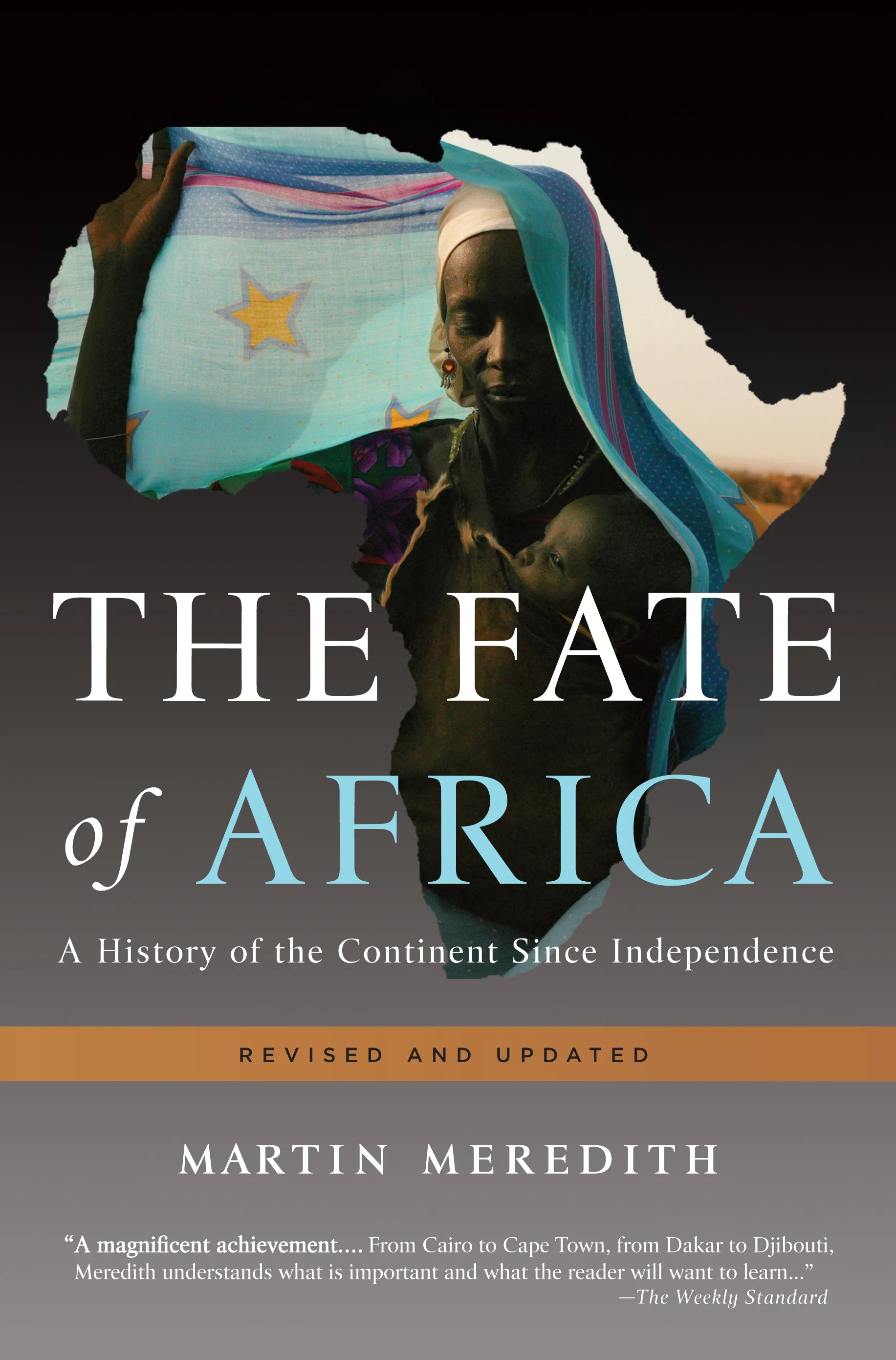
The Fate of Africa, Martin Meredith
This book focuses specifically on the history of Africa from independence onwards. It is obviously not comprehensive and focuses mostly on the infamous leaders of Africa who promised so much and delivered so little. Meredith discusses racism and apartheid in South Africa, the genocides in Rwanda and Sudan, and the dictators of Ethiopia, Zaire, and elsewhere. The book also delves into the persistent attempts by European nations to maintain a sphere of influence over the continent and the destruction and death that it leads to. A long and at times difficult read, it was nonetheless important to learn about Africa's history that is often glossed over by history classes.